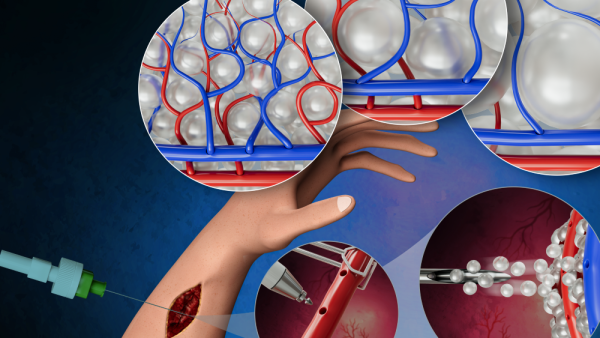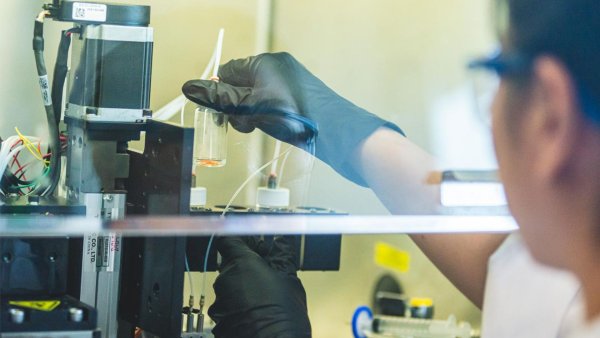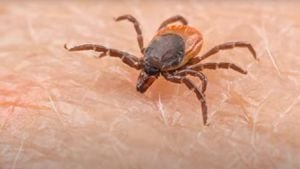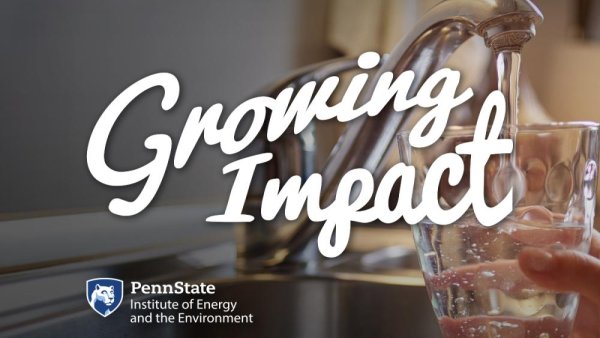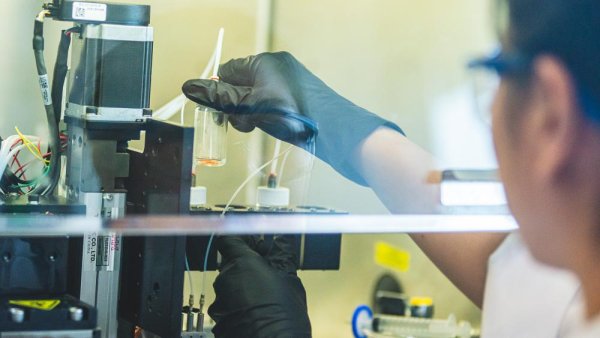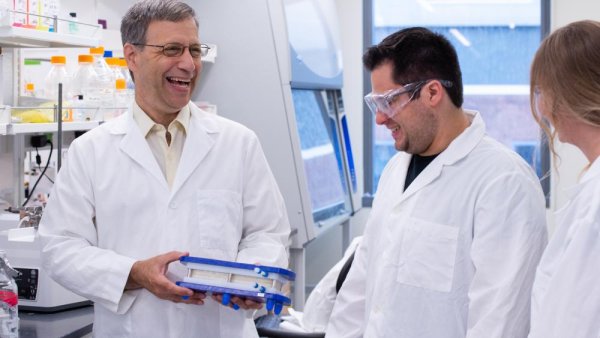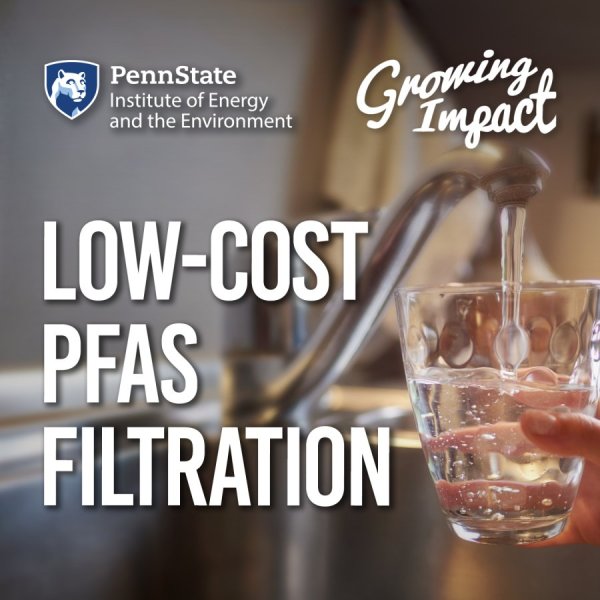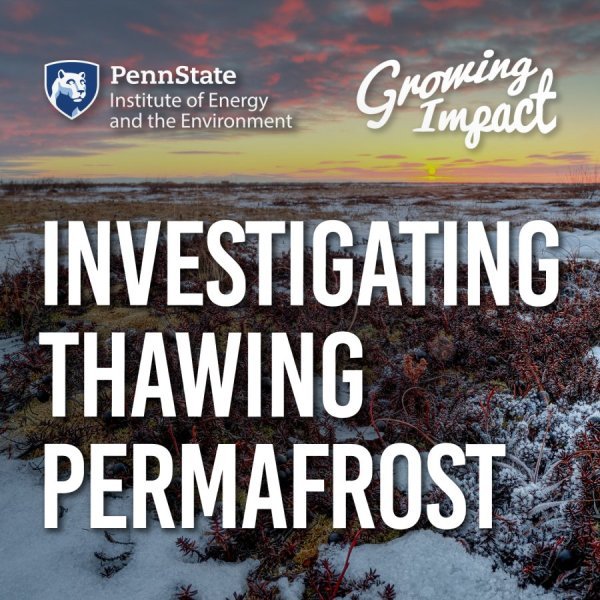Q&A: Sensors that monitor neurological conditions in real time
| psu.edu
A team of researchers led by Huanyu “Larry” Cheng, the James L. Henderson, Jr. Memorial Associate Professor of Engineering Science and Mechanics at Penn State, created a highly-sensitive and cost-effective sensor to better monitor the concentration in sweat or urine of dopamine and tyrosine, a neurotransmitter and an amino acid that are present in the brain.
Penn State biologist David Toews receives 2024 NSF CAREER Award
| psu.edu
David Toews, assistant professor of biology, has been honored with a Faculty Early Career Development (CAREER) award from the U.S. National Science Foundation.
Combining novel biomaterial and microsurgery might enable faster tissue recovery
| psu.edu
For soft tissue to recover and regrow, it needs blood vessels to grow to deliver oxygen and nutrients. Sluggish vascularization, however, can slow or even prevent recovery and regrowth of lost or damaged soft tissue after a severe injury or serious illness such as cancer. To speed up the formation and patterning of new blood vessels, Penn State researchers have combined a novel biomaterial with a microsurgical approach used in reconstructive surgery, enabling improved recovery of soft tissue.
In a first, scientists 3D bioprint skin during live operation in rats
| interestingengineering.com
3D bioprinting skin experiments carried out in rats could pave the way for treatments in dermatology and reconstructive surgeries. This article quotes Dino Ravnic, an associate professor of surgery.
Hollowed out: How EQT’s expansion in West Virginia set 4 families reeling, while regulators trusted the company to answer their complaints
| alleghenyfront.org
Pittsburgh gas giant EQT pledges to tackle climate change and flexes political muscle. Communities in its frack path face stark realities. This article quotes Jose Fuentes, professor of meteorology and atmospheric science.
Ticks still looking to bite amid warm March days
| yahoo.com
While some may assume it’s too early in the year to face a tick bite, experts say the bloodthirsty pests are still a risk to people and pets. This article mentions Penn State.
'Growing Impact' examines PFAS water contamination, evaluation of existing tech
| psu.edu
The latest episode of the "Growing Impact" podcast examines the challenges and potential negative health outcomes of PFAS in drinking water, highlighting efforts to evaluate decontamination technologies for safer community water sources.
Preisendanz to direct Penn State College of Agricultural Sciences institute
| psu.edu
Heather Preisendanz, associate professor of agricultural and biological engineering in Penn State’s College of Agricultural Sciences, has been named director of the Institute for Sustainable Agricultural, Food, and Environmental Science.
Student Engagement Network Grants can fund a wide range of student projects
| psu.edu
Undergraduate students from all campuses and majors can now apply for a Student Engagement Network Grant to support a variety of engagement experiences during Maymester and summer 2024. Engagement experiences can take many forms and grants of $1,000 to $2,000 can help students cover many kinds of costs.
3D-printed skin closes wounds and contains hair follicle precursors
| psu.edu
Fat tissue holds the key to 3D printing layered living skin and potentially hair follicles, according to researchers who recently harnessed fat cells and supporting structures from clinically procured human tissue to precisely correct injuries in rats. The advancement could have implications for reconstructive facial surgery and even hair growth treatments for humans, according to an international team led by researchers from Penn State.
Membrane research moves forward with additional five years of NSF funding
| psu.edu
The Membrane Applications, Science and Technology Center, an industry-university cooperative research center supported by the U.S. National Science Foundation and co-led by Penn State, recently received five additional years of funding. The funding will allow for an expansion of the center at Penn State, which has served as one of four of the center’s partner academic institutions since 2019.
Growing Impact: Low-cost PFAS filtration
| Featuring Stephanie Butler Velegol, Enrique Gomez, Faith Kibuye, Heather Preisendanz, Juliana Vasco-Correa
For decades, PFAS (per- and polyfluoroalkyl substances) have been a staple in products from detergents to cosmetics, making items more durable and resistant to water and stains. However, these "forever chemicals" persist in the environment and are now ubiquitous, even in our drinking water. Emerging evidence links PFAS exposure to significant health risks, prompting a team of researchers to evaluate affordable filtration technology, especially in communities reliant on well water.



